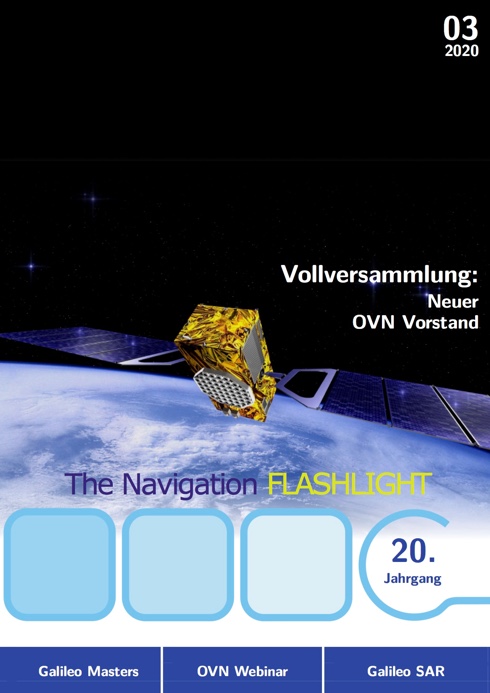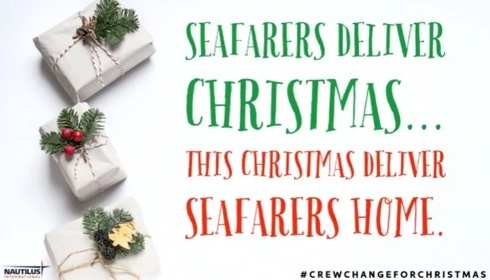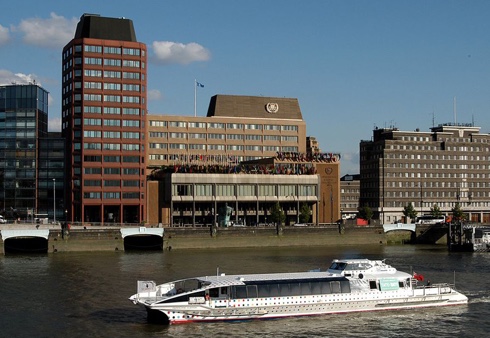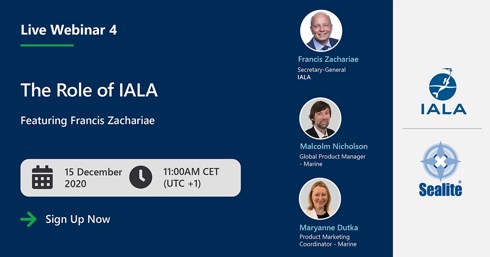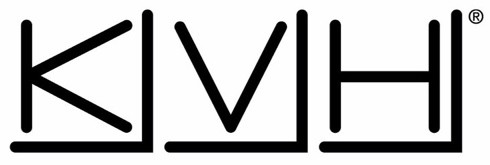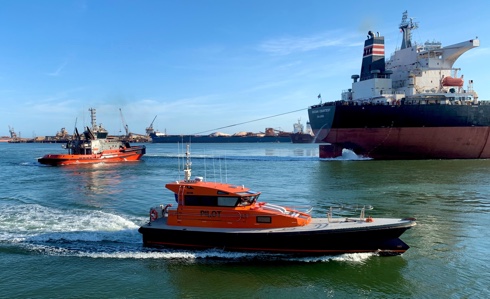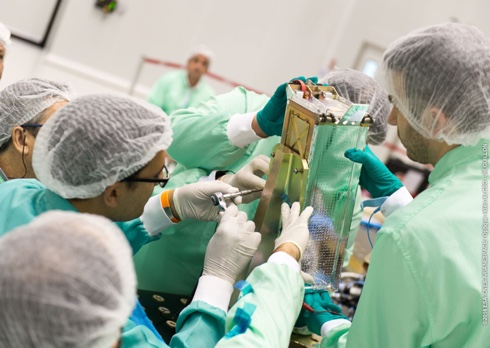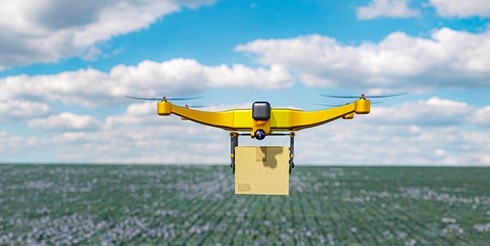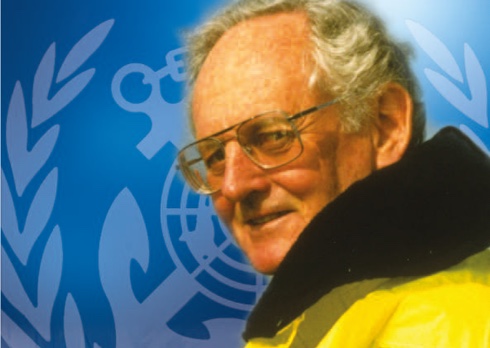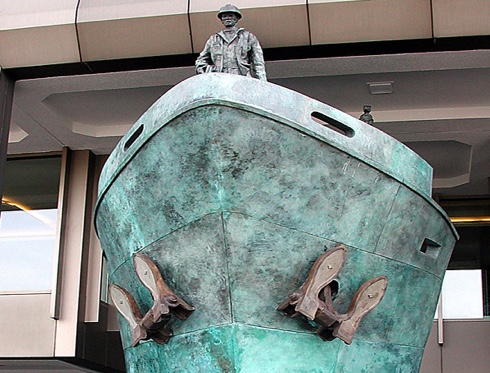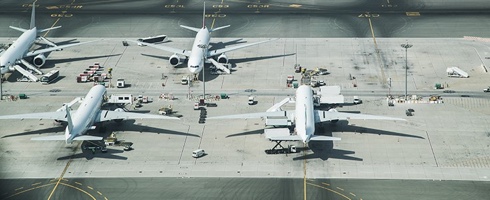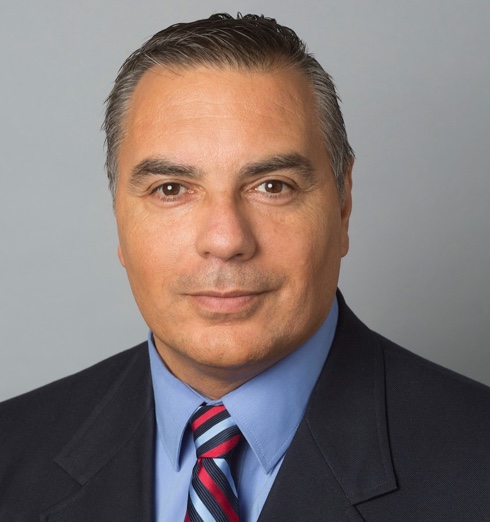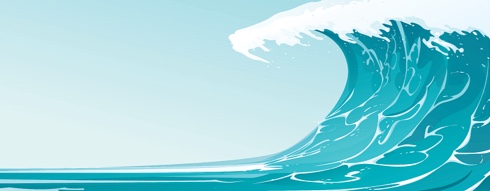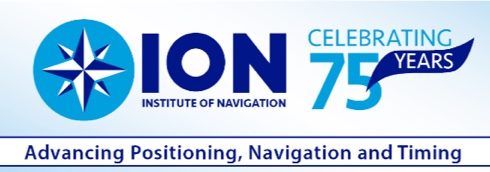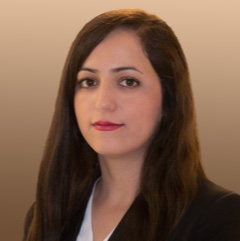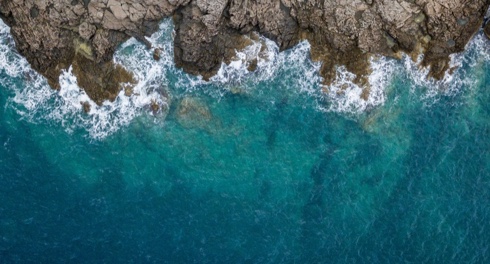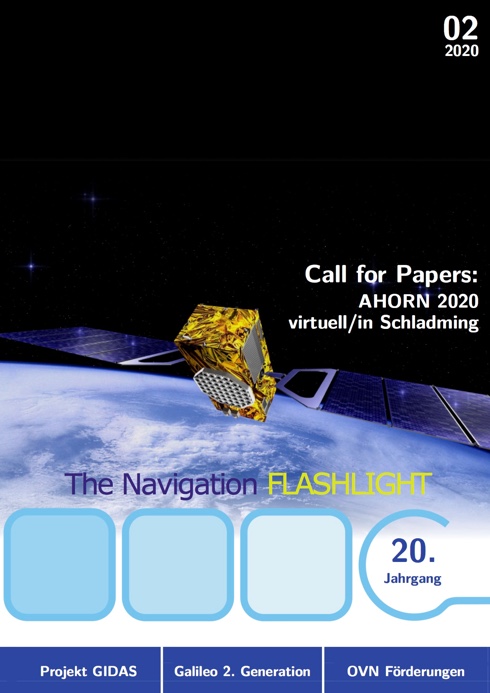The Navigation Flashlight 20/3
From our Austrian member institute, the Österreichischer Verein für Navigation, we have received word of the latest issue of their regular publication, The Navigation Flashlight. It is published three times a year, currently in its twentieth year of publication and it is in German.
Campaign to deliver seafarers home
With many seafarers facing a second December away from home, Nautilus launched its campaign in late 2020 calling for government and industry to carry out as many crew changes as possible to ‘deliver seafarers home for Christmas’.
400,000 seafarers were thought to be stranded on ships worldwide due to the failure of government to allow travel to and from vessels during the Covid-19 crisis. Research by the Union shows that almost all seafarers have been directly affected by the pandemic.
Nautilus has been inundated with requests for support from these seafarers, who have been dealing with issues such as exhaustion, redundancy, and cuts to pay and conditions. Many have either been stranded at sea, away from their loved ones, or trapped at home unable to earn a living.
The Union launched a petition urging governments and the United Nations to work together to ensure that seafarers are designated as key workers in every country, and to enable global crew changes.
Anglo-French air defence exercise
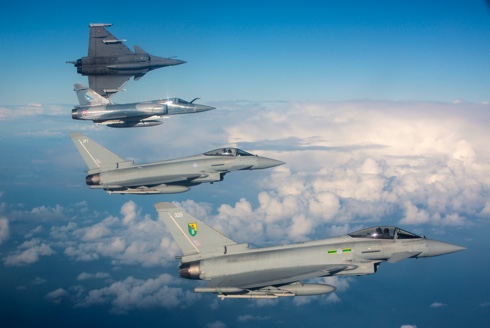
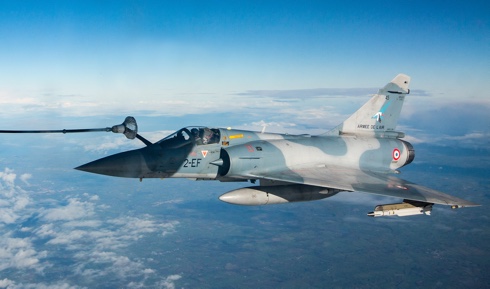
On 15 December the RAF and French Air forces carried out a joint intercept exercise, scrambling both countries’ Quick Reaction Alerts (QRA).
Typhoons from RAF Coningsby in Lincolnshire linked up with Armée de l’Air Rafale aircraft to intercept a simulated non-NATO military aircraft entering the UK Airspace. The key objective of the scramble was to exercise and practice NATO Long Range Aviation procedures within the UK and French Flight Information Regions (FIR) and develop the tactical co-ordination involved with international cross-FIR border operations.
Eye on the sky transforms detection with quantum radar
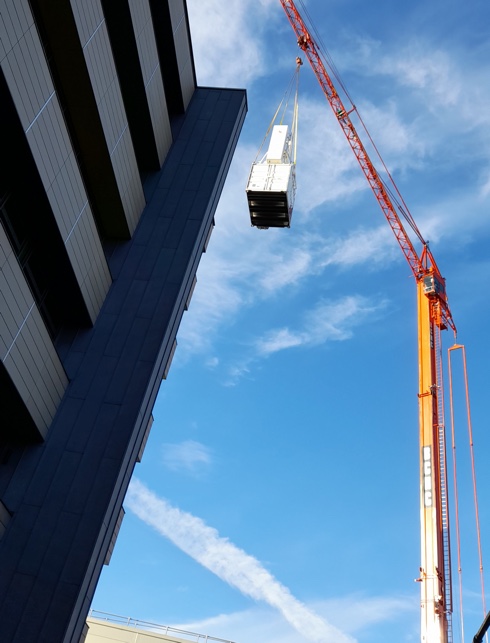
Radar equipment is being installed at the University of Birmingham as part of a demonstration intended to test and prove the precision of quantum-enabled radar detection capabilities.
A key part of keeping everyday life secure is being able to detect dangerous or unsafe situations before they occur. Quantum enabled radar technology research, undertaken by academics at the UK Quantum Technology Hub Sensors and Timing, aims to do precisely this.
Radar detection is a deceptively complex necessity in the modern world: it is required for a surprisingly wide range of sectors. For example, high precision radar will ensure autonomous vehicles can detect hazards well ahead of time. Hub academics are also developing next generation distributed radar systems, which will transform surveillance by providing much greater coverage and maintaining real-time situational awareness in highly congested and cluttered environments.
IMO MSC 102 – reported by IAIN delegate James Taylor
The final report was accepted by the Maritime Safety Committee, and now goes to the IMO Council and will thus complete its statutory journey.
IMO is currently much concerned, rightly, at the need for Governments and the shipping industry globally, with its wildly varying standards of management and care, to resolve the issue of crew members, out of contract and so unpaid, being isolated in foreign ports during the pandemic, and unable to return home to families. This requires governmental action, and will take some time to resolve to any degree of satisfaction.
Progress can be reported on navigational issues such as increasing standardisation of Port State Control, domestic ferry safety and effective water space management.
UK, French, US airborne forces train
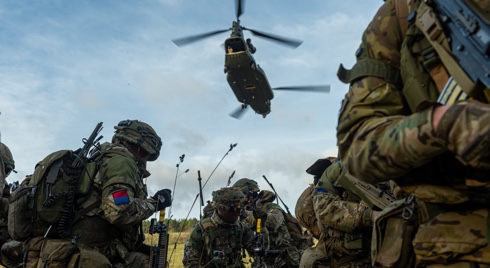
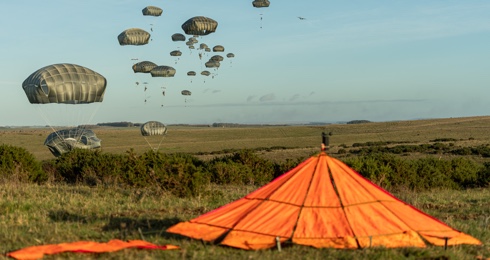
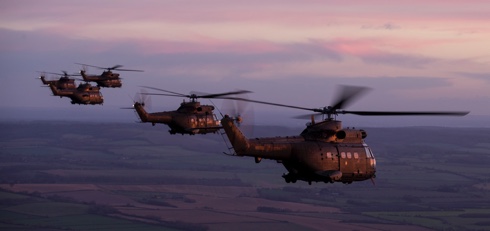
Some 20 helicopters carried the 1,300-strong 2 PARA Battlegroup into action on 4 December on Exercise Wessex Storm. Troops, vehicles and stores were lifted by Royal Air Force Chinook and Puma support helicopters, protected by the sensors and weapons of Army Air Corps Wildcat reconnaissance helicopters and Apache attack helicopters. This was reported by the (UK) Ministry of Defence on 4 December.
The training is about confirming the UK’s 2 PARA Battlegroup’s skills and readiness to serve as the lead infantry unit within 16 Air Assault Brigade, the British Army’s global response force. Some 150 troops from the French 2e Reégiment Etranger de Parachutistes and a 40-strong platoon from the US Army’s 2nd Battalion, 503rd Parachute Infantry Regiment are taking part. Their involvement is about growing understanding of each other’s capabilities and tactics, meaning our airborne forces are better prepared to operate together on future operations.
Sealite webinar: The Role of IALA
Marine aids to navigation manufacturer Sealite welcomes Francis Zachariae (FZ), Secretary-General of the International Association of Marine Aids to Navigation and Lighthouse Authorities (IALA) to speak on his organisation in a forthcoming webinar.
Francis will discuss the history of IALA and the organisation’s focus on the development of standards and guidelines to ensure the safety of all mariners. He will also discuss IALA’s strategic move towards becoming an intergovernmental organisation (IGO).
The webinar will be held on December 15, 2020, 1100 hrs Paris time. Previous webinars can be viewed here.
You can register here.
Calling boat and yacht owners worldwide
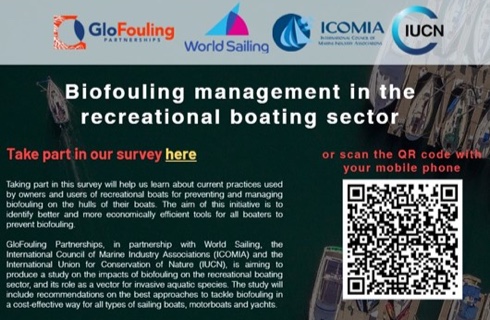
IMO is asking recreational boat owners worldwide to take part in a global survey on how they deal with fouling on their craft, as part of a major project to help address the spread of aquatic invasive species.
The survey is available here: https://www.glofouling.imo.org/recreational-boating-survey
This is for owners of all types of sailing boats, motorboats and yachts is being carried out by IMO’s GloFouling Partnerships Project, which aims to protect marine ecosystems from the negative effects of invasive aquatic species.
RAF trains in Turkey
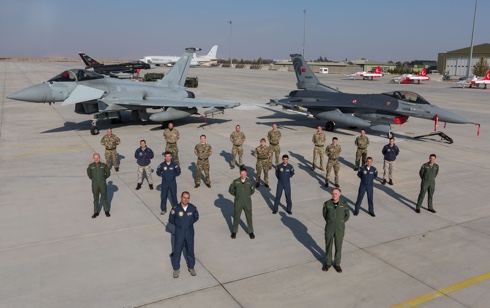
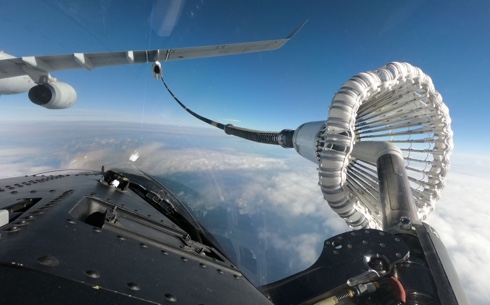
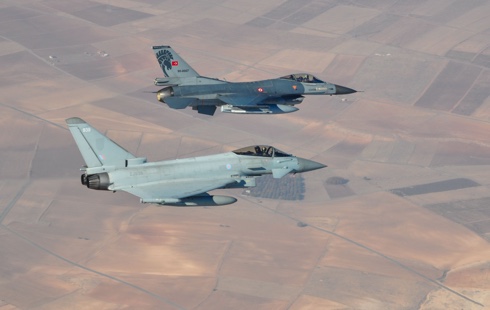
Royal Air Force personnel and Typhoons have conducted a week of training in Turkey as part of a package of the NATO Alliance’s assurance measures to one of its key allies. This was reported by the UK Ministry of Defence on 24 November.
As part of the UK’s contribution in delivering on its NATO commitment of Tailored Assurance Measures to Turkey, No IX(B) Squadron Typhoons based at RAF Lossiemouth in Scotland, spent three days exercising alongside the Turkish Air Force F16s at the 3rd Main Jet base, Konya, in south central Turkey.
Furuno offers KVH AgilePlans® maritime VSAT connectivity in Japan
It was reported from Middletown, Rhode Island, on 19 November that KVH Industries, Inc. announced that Furuno is offering AgilePlans® maritime VSAT connectivity in Japan.
The KVH AgilePlans programme is a Connectivity as a Service (CaaS) subscription-based model offering a comprehensive solution for maritime satellite communications.
Without a costly capital outlay, the AgilePlans service is said to eliminate barriers to upgrading to VSAT or switching from a competitor. It includes high-speed connectivity with unlimited e-mail and texting via KVH’s mini-VSAT BroadbandSM HTS network, TracPhone® HTS-series hardware, with installation in as many as 4,000 ports and locations, cybersecurity protection, KVH OneCare™ maintenance, and no long-term commitment, all for one monthly fee.
Australian ports – Tiller Technical and Helm Operations launch expansion
It was reported from Perth, Western Australia on 18 November that Canadian software company Helm Operations (Victoria, BC) and Western Australian marine consultant Tiller Technical (Perth, WA) have signed a new partnership agreement to help vessel operators digitalize their operations.
As part of the partnership, Tiller Technical will use its industry expertise and local knowledge to help companies implement and use Helm CONNECT – Helm’s industry-leading harbor services and fleet management software – to modernize, digitalize, and streamline their operations.
Since launching in 2016, Helm CONNECT has become the world’s fastest growing maritime software platform, now used by more than 220 companies and 4000 vessels worldwide to help manage fleet operations, including vessel maintenance, regulatory compliance, personnel management, and vessel scheduling and billing.
ESA student internships – Applications invited
The next round of internship opportunities at ESA is now published and opportunities will remain open until 10 December 2020.
Internships last from three to six months and opportunities are available in engineering, science, IT, natural/social sciences, business and administration services.
In the words of the ESA’s communiqué: ‘You can browse this year’s opportunities directly on our recruitment website. Then simply create your candidate profile, upload your CV and add your motivation letter to submit your application.’
New ICAO-IFAR agreement to enhance innovation integration
It was announced from Montréal on 9 November that ICAO and the International Forum for Aviation Research (IFAR) had formalised a new agreement aimed at accelerating and improving the effective assessment of new aviation technologies and innovations.
The agreement establishes two new ICAO-IFAR Expert Groups which will review latest innovations in the areas of urban air mobility and AI in aviation. After their first year, each group will report back to ICAO and IFAR and the two organizations will use the findings to optimize and formalize IFAR’s future contributions to ICAO and international aviation.
ICAO Secretary General Dr Fang Liu commented: ‘This new collaboration will see IFAR’s community supporting ICAO’s activities by sharing its consensus view on current areas of technical challenge and opportunity, and in turn, ICAO will augment its ability to engage with and benefit from IFAR’s processes and expectations.’
IMO Secretary-General Emeritus William A. O’Neil, remembered
William A O’Neil, Secretary-General Emeritus of the IMO died in the UK on 29 October at the age of 93.
IMO Secretary-General Kitack Lim expressed his sincere condolences to the Canadian Government, Mr O’Neil’s remaining family, and the condolences of the entire IMO membership and staff.
‘It is with great sadness that we have learned of the passing of Mr O’Neil, who was a great friend and mentor who made a huge personal contribution to securing globally applicable safety, security and environmental standards,’ Mr Lim said. Mr O’Neil was Secretary-General of IMO from 1990 to 2003.
Sustainable funding for national CAAs – ICAO emphasises call for governments
It was reported from Montréal on 22 October that ICAO Secretary General Dr Fang Liu reiterated the UN agency’s call for national governments to assure the sustainable funding of their civil aviation authorities (CAAs).
Dr Liu highlighted: ‘State aviation authorities have been facing drastic reductions to their funding and this has led to significant gaps between performance and oversight expectations and available resources. To overcome these challenges, a cooperative and collaborative approach with industry, and regional and international organizations, is key.’
IHMA’s new President, Captain Yoss Leclerc
On 20 October the International Harbour Masters’ Association (IHMA) announced that its new President is Captain Yoss Leclerc of the Port of Québec. He succeeds Captain Allan Gray, President and CEO, Halifax Port Authority, Canada.
Captain Leclerc was elected on 8 October at the conclusion of the IHMA Ordinary General Meeting held remotely for the first time due to COVID-19 restrictions. The OGM was contributed to online by delegates from 13 countries.
In a statement to members Captain Leclerc pledged to help the Association meet the challenges facing Harbour Masters to ensure the sustainability of ports in the future.
Pacific PNT meeting rescheduled
The Institute of Navigation’s (ION) biennial Pacific PNT meeting, scheduled to take place April 19-22, 2021 in Honolulu Hawaii, has been rescheduled to take place in the spring of 2022.
ION Pacific PNT is the global cooperative development of Positioning, Navigation and Timing technology and applications where policy and technical leaders from Japan, Singapore, China, South Korea, Australia, the United States and more meet to discuss policy updates, receive program status updates and exchange technical information.
Specific dates for ION Pacific PNT 2022 have not yet been announced, however abstracts are being accepted through November 1, 2021. The 2022 dates will be announced once they are finalized.
Mentoring at sea
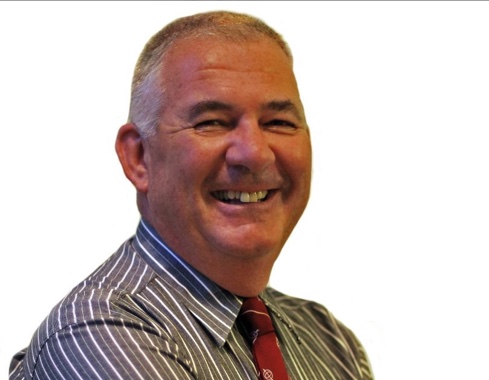
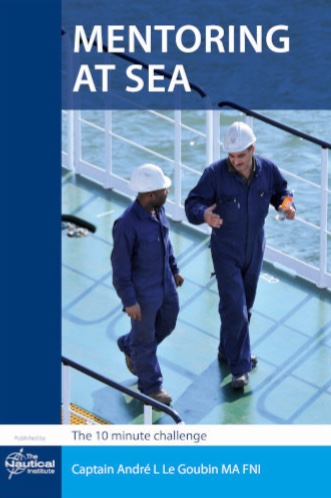
The Nautical Institute is launching an online campaign promoting mentoring at sea, thanks to generous funding from the TK Foundation.
Entitled ‘Mentoring at Sea – The 10 Minute Challenge’ the campaign features a series of five short films that cast a spotlight on the many ways in which mentoring improves life at sea while helping mariners to grow professionally. Released fortnightly, each film documents seafarers of all ages, nationalities and ranks discussing the fundamental aspects of mentoring, whether giving or receiving. Participants speak passionately about the positive impact of sharing knowledge and experience with others.
US Maritime Advisory – GPS Interference
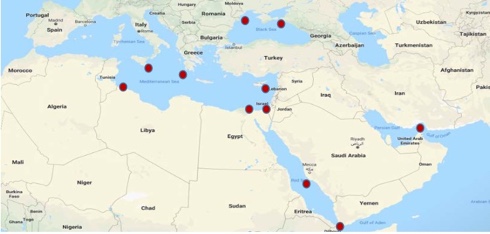
Towards the end of September the US Maritime Administration (MARAD) issued an advisory notice (No 2020-016) concerning GPS interference.
Multiple instances of significant GPS interference have been reported worldwide in the maritime domain. This interference is resulting in lost or inaccurate GPS signals affecting bridge navigation, GPS-based timing, and communications equipment. Satellite communications equipment may also be impacted.
Over the last year, areas from which multiple instances have been reported include the eastern and central Mediterranean Sea, the Persian Gulf, and multiple Chinese ports. The US Transportation Command “Message for Industry” at https://go.usa.gov/xdSpq provides additional GPS interference information.
Reminder: ION accepting nominations for ION Fellows and Annual Awards
Nominations for The Institute of Navigation’s (ION) Fellows and Annual Awards Program are now being accepted. Nominations are due no later than 15 October.
The ION Annual Awards Program is sponsored by The Institute of Navigation and recognizes individuals making significant contributions or demonstrating outstanding performance relating to the art and science of Positioning, Navigation, and Timing (PNT).
Nominations may be submitted now for ION’s Fellows and Annual Awards here.
ESA Discovery studies lay path to navigating the Moon
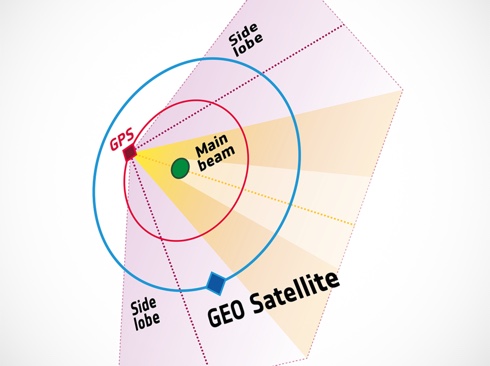
Just as we navigate our way around Earth’s surface using the connection between our phones and navigation satellites high above us, our missions use the very same satellites to navigate their way in space.
Around ten years ago, engineers started demonstrating that spacecraft outside the orbit of navigation satellites could also navigate in space using ‘spill over’ signal from the satellites.
ESA has invested in the development of an appropriate receiver, and is exploring whether it could be demonstrated on the Lunar Pathfinder mission. It will help lay the groundwork for providing navigation services around the Moon, currently studied through two ESA NAVISP activities and culminating in the Moonlight initiative.
Dr Kimia Shamaei receives the US ION Parkinson Award
On 25 September the (US) Institute of Navigation (ION) announced the presentation of the prestigious Bradford W Parkinson Award to Dr Kimia Shamaei. This took place during the ION GNSS+ 2020 VIRTUAL Conference.
Dr Shamaei was recognized for her thesis, Exploiting Cellular Signals for Navigation: 4G to 5G.
ION presents Dr Y Jade Morton with its prestigious Johannes Kepler Award
From Manassas, Virginia, on 25 September the Institute of Navigation’s (ION) Satellite Division reported that it had presented Dr Y Jade Morton with its Johannes Kepler Award during the ION GNSS+ VIRTUAL Conference.
She was recognized for advances in scientific and navigation receiver technology, automated data collection, robust carrier phase tracking, remote sensing, and profound impact as an educator and author.
Dr Morton has made pioneering contributions to the advancement of GNSS receiver technology and utilization of these enhanced capabilities for scientific discovery. Her work brings together scientific rigor with state-of-the-art engineering innovations to simultaneously improve PNT, while revealing remarkable new applications for GNSS.
IHO releases new standards for hydrographic surveys
The IHO released earlier this month a new edition of the Standards for Hydrographic surveys (S-44). In addition to surveys to support the safety of navigation, these standards can be adapted for oil and gas, renewable energies, dredging, geophysics, and geotechnics.
By clarifying the required levels of accuracy, they will help define the requirements in terms of technology, time and human resources and will save valuable resources.
The Navigation Flashlight 20/2
From our Austrian member institute, the Österreichischer Verein für Navigation, we have received word of the latest issue of their regular publication, The Navigation Flashlight. It is published three times a year, currently in its twentieth year of publication and it is in German.

